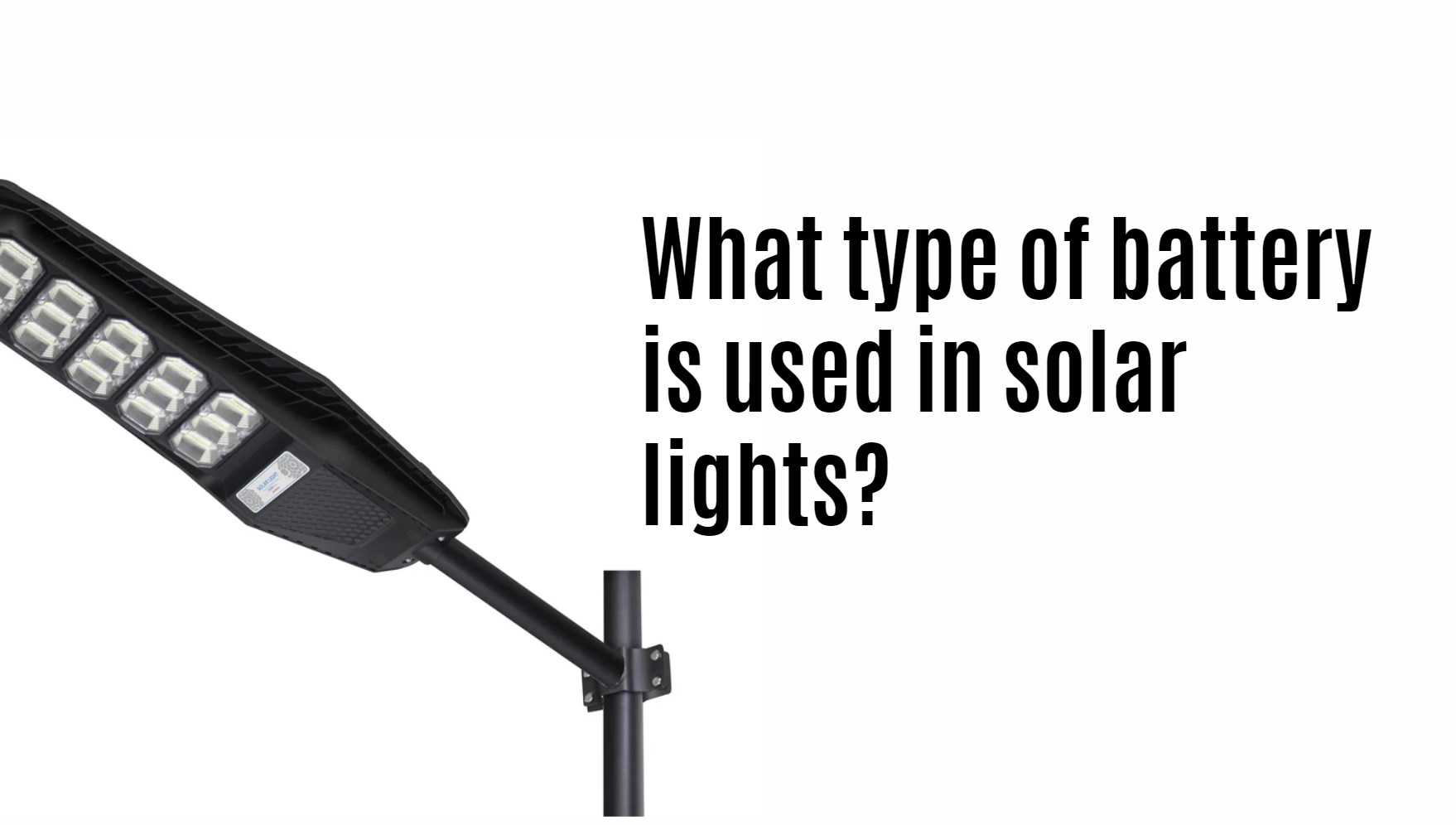Solar lights typically use lithium-ion, nickel-metal hydride (NiMH), or lead-acid batteries. Lithium-ion batteries are preferred for their high energy density and longer lifespan, while NiMH batteries are common in smaller solar lights due to their cost-effectiveness. Lead-acid batteries are used in larger solar applications but are heavier and less efficient.
Exploring the Types of Batteries Used in Solar Lights
Solar lights have become an essential component of outdoor lighting solutions, providing energy-efficient illumination powered by renewable energy. Understanding the types of batteries used in solar lights is crucial for consumers looking to optimize performance and longevity. This article will delve into the various battery types commonly found in solar lights, their advantages, and best practices for maintenance.
Common Battery Types in Solar Lights
- Lithium-Ion Batteries
- Description: Lithium-ion batteries are widely used in modern solar lights due to their high energy density and lightweight design.
- Advantages:
- Long Lifespan: Typically last between 2,000 to 5,000 cycles, making them a cost-effective choice over time.
- Fast Charging: Can be charged quickly, allowing solar lights to operate efficiently even with limited sunlight exposure.
- High Efficiency: Retain charge well and perform better in cold temperatures compared to other battery types.
- Applications: Commonly found in higher-end solar lights and systems that require reliable performance.
- Nickel-Metal Hydride (NiMH) Batteries
- Description: NiMH batteries are another popular choice for solar lights, especially in smaller or budget-friendly models.
- Advantages:
- Cost-Effective: Generally less expensive than lithium-ion batteries, making them accessible for various applications.
- Good Performance: Provide decent performance with moderate energy density and can handle a reasonable number of charge cycles (around 500-1,000 cycles).
- Environmentally Friendly: NiMH batteries do not contain toxic heavy metals like cadmium found in some other battery types.
- Applications: Frequently used in garden solar lights and decorative outdoor lighting.
- Lead-Acid Batteries
- Description: Lead-acid batteries are the traditional choice for larger solar applications but are less common in modern solar lights due to their weight and inefficiency.
- Advantages:
- Durability: Known for their robustness and ability to withstand rough conditions.
- Cost-Effective for Large Systems: While heavier, they can be a cost-effective solution for larger solar installations that require significant power storage.
- Disadvantages:
- Weight: Heavier than lithium-ion or NiMH options, making them less suitable for portable applications.
- Shorter Lifespan: Typically last around 300-500 cycles, which may require more frequent replacements.
- Applications: Often used in larger solar setups such as street lighting or off-grid systems.
Battery Comparison Chart
| Battery Type | Lifespan (Cycles) | Energy Density | Weight | Cost |
|---|---|---|---|---|
| Lithium-Ion | 2,000 – 5,000 | High | Light | Higher |
| Nickel-Metal Hydride (NiMH) | 500 – 1,000 | Moderate | Moderate | Moderate |
| Lead-Acid | 300 – 500 | Low | Heavy | Lower |
Best Practices for Maintaining Solar Light Batteries
- Regular Cleaning
- Keep the solar panels clean from dirt and debris to ensure maximum sunlight exposure. This helps maintain battery charging efficiency.
- Optimal Placement
- Install solar lights in areas that receive direct sunlight for most of the day. This maximizes charging potential and enhances battery performance.
- Battery Replacement
- Monitor battery performance regularly. If you notice diminished brightness or shorter operation times, it may be time to replace the battery.
- Seasonal Checks
- Before winter or extended periods of low sunlight, check the health of your batteries and replace them if necessary to ensure reliable operation when needed most.
Applications of Solar Lights
- Garden Lighting
- Solar garden lights enhance outdoor aesthetics while providing illumination without relying on grid power.
- Pathway Lighting
- Ideal for illuminating walkways and driveways, improving safety during nighttime hours.
- Security Lighting
- Motion-activated solar security lights provide safety without the need for electrical wiring.
- Decorative Lighting
- Solar-powered decorative lights add charm to outdoor spaces without increasing electricity bills.
Latest News
- Recent advancements in battery technology have led to improved performance metrics for lithium-ion batteries used in solar applications, enhancing their efficiency and lifespan.
- New regulations regarding renewable energy incentives are being introduced globally, encouraging homeowners to adopt solar solutions paired with efficient battery storage.
- Research into hybrid systems combining lithium-ion technology with traditional lead-acid designs is gaining traction, promising improved performance metrics.
Redway Expert Comment
“As experts at Redway Battery, we emphasize the importance of selecting the right battery type for your solar lighting needs. Lithium-ion batteries offer superior performance and longevity compared to lead-acid options, making them ideal for modern applications. Our commitment to producing high-quality lithium LiFePO4 batteries ensures that we meet our customers’ diverse energy needs effectively.
Conclusion
In conclusion, understanding the types of batteries used in solar lights is essential for optimizing performance and ensuring long-term reliability. While lithium-ion batteries provide numerous advantages such as longer lifespan and faster charging times, nickel-metal hydride and lead-acid options also have their place depending on specific application needs. By following best practices for maintenance and usage, users can maximize their investment in solar technology effectively.




